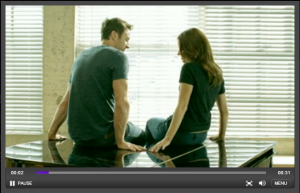
In my last newsletter I outlined some ideas about the value of placement exposure vs. the actual monetary compensation. We went over some things to consider when talking with music supervisors directly, publishers, and generally anyone involved in the process of licensing your music. At the end of that newsletter I asked for some feedback from anyone on the list who had success getting a placement on MTV. The response was really amazing and I wanted to share with you my favorite 4 throughout this week! Yes, I’ll be emailing you more often than usual this week, but it’s really important you read each and every story. The cool thing you’ll see is that there are so many different ways to get your music placed, and there are also varying degrees of success related to those methods. Let’s start the week off with Lauren.
Case Study No. 1: Lauren F.
Lauren wrote to tell me her story about her song “3 AM” which played during the MTV Movie Awards in 2012. The crazy part? She didn’t even KNOW about it until almost a full year later when she received a royalty statement from BMI! Now a lot of you may be thinking something along the lines of “Wow, that’s rough!” (only with more swear words), the great part about Lauren’s story is how she still took advantage of the opportunity to tell a story.
Lauren Says…
“While it would have been amazing to have known about it in advance and told people to tune in, I was still able to make the most of the situation by posting a very ridiculous picture of myself reacting to my BMI statement. I posted it online for fans and friends and also sent it in some thank you emails to people who had helped me along the way. It got a lot of responses including a very encouraging email from a VIP that is currently pinned to my wall. I also updated my website to reflect the important placement.”

Tremendous right? She was able to leverage her successful placement into a great story she could share with fans. Out of something that happened a year before, she managed to get up a relevant photo, directly communicate her success to fans, put some great PR on her website, and even got feedback from a key business contact.
Method of Placement: Through A Music Library Cold Call
Value Gained: Lauren said the BMI statement wasn’t a bank-buster by any means, but she was happy for the win and excited to be able to have non-musical content to tide her fans over while they awaited her new album.
The Doc Brown Advantage: I asked Lauren what she might do if she had the opportunity to hop in the DeLorean with Doc and Marty and inform 2012 Lauren about the upcoming placement before it happened. She had a great idea (I left out the hover board antics for brevity’s sake):

“If I had known about the placement in advance, I would have promoted it on social media and frankly told my Mom to watch! I would have tried to make it a “virtual event” that fans could join, regardless of their location.”
IMHO: First, always embrace your wins just like Lauren did. Totally rad that she took an opportunity that most people would consider ‘old news’ and still turned it into a meaningful story for her present day communications. And remember, just because you don’t make a million dollars immediately is no reason to downplay your success. Get excited! You work REALLY hard to get your music out there so when it pays off, it’s time to f’in party!
I’d also suggest that anyone in a similar situation reach out to their publisher or whoever is placing their music and request that any news about new placements be delivered in a timely manner. Remember, your publisher works for YOU. They take a good chunk of your money and I believe that most publishers are obligated to do a lot more than they currently do in order to earn it. You may need to follow up once a month to check-in, but it’s good to put that pressure on your representative. That way your music stays top of mind and you can capitalize on wins like this one. I also like her idea about a live event. That’s a fairly simple thing to achieve with Google Hangouts or Goto Meeting, and really engages fans on a high level.
Check out Lauren’s website and music here.
Do you have other ideas about what you might do if you get a placement? How else can you capitalize on this exposure? I’d love to hear your ideas so email me or leave a comment below!

